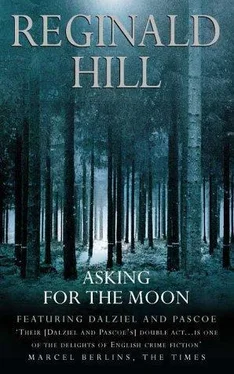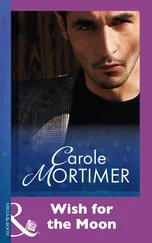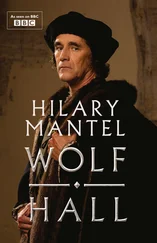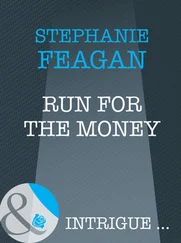Reginald Hill - Asking For The Moon
Здесь есть возможность читать онлайн «Reginald Hill - Asking For The Moon» — ознакомительный отрывок электронной книги совершенно бесплатно, а после прочтения отрывка купить полную версию. В некоторых случаях можно слушать аудио, скачать через торрент в формате fb2 и присутствует краткое содержание. Жанр: Полицейский детектив, на английском языке. Описание произведения, (предисловие) а так же отзывы посетителей доступны на портале библиотеки ЛибКат.
- Название:Asking For The Moon
- Автор:
- Жанр:
- Год:неизвестен
- ISBN:нет данных
- Рейтинг книги:5 / 5. Голосов: 1
-
Избранное:Добавить в избранное
- Отзывы:
-
Ваша оценка:
- 100
- 1
- 2
- 3
- 4
- 5
Asking For The Moon: краткое содержание, описание и аннотация
Предлагаем к чтению аннотацию, описание, краткое содержание или предисловие (зависит от того, что написал сам автор книги «Asking For The Moon»). Если вы не нашли необходимую информацию о книге — напишите в комментариях, мы постараемся отыскать её.
Asking For The Moon — читать онлайн ознакомительный отрывок
Ниже представлен текст книги, разбитый по страницам. Система сохранения места последней прочитанной страницы, позволяет с удобством читать онлайн бесплатно книгу «Asking For The Moon», без необходимости каждый раз заново искать на чём Вы остановились. Поставьте закладку, и сможете в любой момент перейти на страницу, на которой закончили чтение.
Интервал:
Закладка:
'Thank you,' he said, peering through the glass front of one of the bookcases at a series of leather-bound collections of The Gentleman's Magazine for the years preceding the First World War.
'Help yourself, do,' said Kingsley, referring, Pascoe hoped, to the decanters and glasses which stood on a pair of small wine tables rather than to the contents of his bookshelves.
'Right,' said Pascoe.
Kingsley left and Pascoe immediately poured himself a large scotch and tried to recall what the hell he was doing here. It all seemed very unreal. Kate Swithenbank, possibly -probably – dead somewhere; that was the thing to hang on to. Alcoholic vicars with voluptuous wives were probably totally irrelevant. He wasn't sure whether even this Ulalume business meant anything.
He studied a framed map of the West Riding, dated 1786, which hung on one side of the fireplace. It was no more helpful than the O.S. 2 ^l /2 inch sheet he had examined on Dalziel's suggestion. There were a few patches of woodland around Wearton but the nearest thing to a 'dank tarn' was a small reservoir in open country some three miles to the north.
No, the thing was a mess or at best a confusion. His mind was trying to draw connections which could easily be coincidences, as for example Geoff Rawlinson's accident occurring on the very night Kate may have disappeared. Well, at least that gave Rawlinson an alibi, if he needed one. Unless, of course, he had jumped from that tower because of something on his conscience. Or perhaps was pushed because of something he had seen. Seen? Where? In the churchyard, of course. That's what he'd be looking down at – from a vantage point no one would expect to be occupied at midnight. Or perhaps someone had remembered too late that there was a chance it would be occupied, and gone up to check, and…
No, he was straining; too much speculation and too little evidence was a bad diet for a policeman. But there was something else about the churchyard. Arthur Lightfoot claimed to have seen Swithenbank skulking about there – which meant Lightfoot himself had been skulking about there.
And where else were you likely to find 'the door of a legended tomb'?
'Rapt in thought, Inspector?'
Unheard, Peter Davenport had entered the room. He had a full glass in his hand but seemed to have taken at least temporary control of himself.
'I was just wondering how far the church was from Wear End. You walked here tonight, didn't you?'
'Yes. We came down the old drive that used to be the Aubrey-Beesons' private route to church.'
The who?'
'The old squires of Wearton. They died out in the nineteenth century and by the time Boris's family bought the place, the road had been metalled and motor cars were the new status symbol. It's no use looking at that map, you'll see it much better on here.'
He indicated a picture on the other side of the fireplace in an ornate gilt frame matching that of the map.
'You know a lot about this,' observed Pascoe as he approached.
'Local history's easy for parish priests,' said Davenport. 'We've got most of the records.'
He was making a real effort to sound normal as though eager to postpone an unpleasant moment. But Pascoe lost interest in the vicar's state of mind as he looked more closely at the picture before him.
It was entitled A Prospect of Wear End House 7799 and as from a fair elevation showed the house and its estate. The tree-lined drive was clearly marked running up to the churchyard but close by the churchyard wall a much denser area of woodland was indicated with a small lake in the middle of it.
'These woods, are they still there?' asked Pascoe.
'No. They've all gone. It's a wonder the avenue survived.'
'Why's that?'
'Economics,' said Davenport shortly, as though beginning to feel rather piqued that his reluctance to bare his soul to Pascoe was matched by Pascoe's present indifference to the baring.
'You mean they were sold?'
'Not just them. The Kingsleys had wool money when they came here, but the last two generations, Boris's father and grandfather, were better at spending than making. The estate's nearly all gone. There's a housing development here, a new road there, the village sports and social club playing fields are here, Geoff Rawlinson's bungalow's there… all Boris is left with is this thin triangle with the old drive running up to the corner here.'
His long forefinger, its whiteness stained with nicotine, stubbed viciously at the Prospect.
'And the lake?'
'What? That pond? Drained and filled in when the Kings-leys were still spending money on improvements. About the same time as the "library" was refurbished, I expect. There are limits to what money can buy, aren't there, Inspector? I mean, you can't buy culture. Or peace of mind.'
The hysterical note was beginning to return to his voice, but Pascoe wasn't done with the Prospect yet.
'The old drive – what kind of trees are they?'
'Beech mainly.'
'No cypress?'
'There's a pair of cypress trees by the old lych-gate at the end of the drive, but they're in the churchyard itself. What's your concern with trees, Inspector? Stop trifling, man! Come out with whatever it is you want to say. It's no secret to me why you're here!'
Now Pascoe gave him his full attention. The problem of why the anonymous phone-caller's geographic references should be a century out of date would have to wait. Perhaps (could it be as easy as this?) it wouldn't be a problem in a few minutes. Whatever it was that was devouring this man would soon be revealed. All he had to do was wait. But he wasn't sure if he would have time. He glanced at his watch. Already he'd heard a couple of cars pulling away from the house. Pretty soon he was likely to be interrupted. So, although his judgement told him to sit quietly opposite this man and wait till he spoke of his own accord, instead he took an aggressive feet-apart stance before the fireplace and said sharply, 'All right. If you don't want to talk about trees, suppose you tell me exactly what did happen in the churchyard last October?'
The man looked at him, a curious mixture of relief and wariness in his eyes.
'Happen? What does happen mean to the dead?'
'The dead? Which dead?' asked Pascoe urgently.
'The churchyard's full of the dead, Inspector. In a way since last October I have been one of them.'
'You can drop that rubbish!' said Pascoe scornfully. 'You're here and now and as alive as me. But who's dead, Davenport? Who is dead?'
The vicar held out his glass. Obediently Pascoe slopped it full of gin. The man opened his mouth, was seized by a fit of coughing, drank as though to relieve it, coughed the more, recovered, drank again and made ready to speak.
The door burst open.
'Thank God that's over!' said Boris Kingsley. 'Once one goes, the others soon follow. It's the sheep principle. Mr -Inspector – Pascoe, how would you like us – one by one or all at once?'
CHAPTER VII
There the traveller meets aghast Sheeted Memories of the Past.
Some women cross their legs provocatively. Stella Rawlinson crossed hers like a no-entry sign and regarded Pascoe with all the distaste of an assault victim scanning an identity parade.
'It's kind of you to talk to me,' he said with as much conviction as he could manage. His mind was still on the kind of admission or confession Davenport had been about to make before Kingsley's ill-timed entrance. After that the vicar had risen and withdrawn without another word and Pascoe, deciding it would be poor policy at this time to invite the man along to the station to 'help with enquiries', had exercised his only other choice and pretended nothing had happened. He'd get back to Davenport after he had chatted to the others, by which time another half-bottle of booze might have put him in the talkative mood once more.
Читать дальшеИнтервал:
Закладка:
Похожие книги на «Asking For The Moon»
Представляем Вашему вниманию похожие книги на «Asking For The Moon» списком для выбора. Мы отобрали схожую по названию и смыслу литературу в надежде предоставить читателям больше вариантов отыскать новые, интересные, ещё непрочитанные произведения.
Обсуждение, отзывы о книге «Asking For The Moon» и просто собственные мнения читателей. Оставьте ваши комментарии, напишите, что Вы думаете о произведении, его смысле или главных героях. Укажите что конкретно понравилось, а что нет, и почему Вы так считаете.












